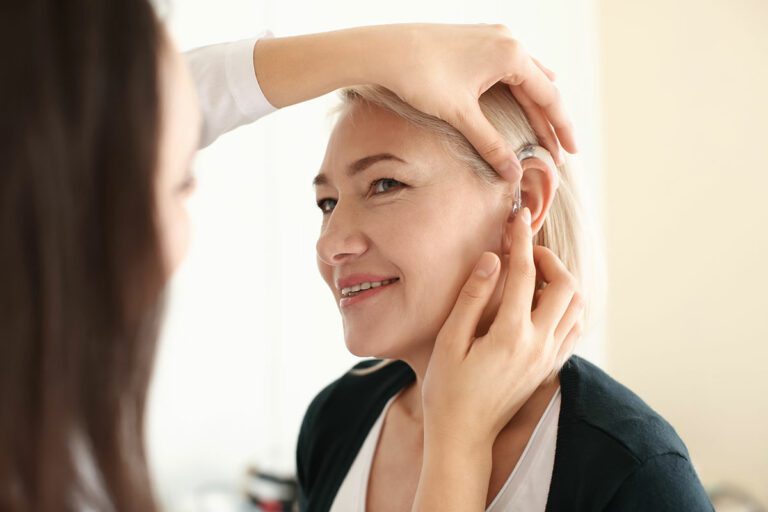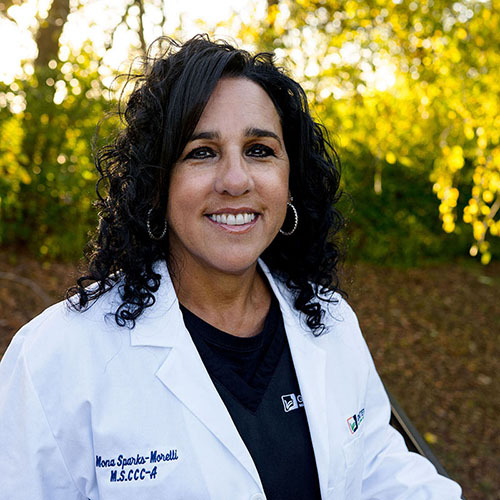Hearing and Audiology Services, by Gateway ENT Audiology in St. Louis, MO
Gateway ENT's 'Audiology Center' voted 'Best Audiology Center' 2023, 2022 & 2021 by St. Louis Magazine readers
Gateway ENT's 'Audiology Center' voted 'Best Audiology Center' 2022 & 2021 by St. Louis Magazine readers
Hearing Care Center

Services
• Diagnostic hearing evaluations
• Hearing aid consultations
• Hearing aid services and repairs
• Tympanometry
• Otoacoustic Emissions
• Tinnitus treatment
• Custom recreation and professional ear plugs
• Hearing protection
• Assistive listening devices
• Custom ear molds and products
• Surgical and medical intervention
Conditions
• Conductive Hearing Loss
• Sensorineural Hearing Loss
• Otosclerosis
• Acoustic neuroma
• Traumatic hearing loss resulting in damaged eardrum
• Drug-induced hearing loss
• Sudden hearing loss
• Ear Wax Build up
• Ear infections

So quiet you could HEAR a pin drop
Meet Our Team Of
Gateway ENT Audiologists
Accepting New Patients
Meet Our Gateway ENT Audiologists Team

Mona Sparks-Morelli, M.S., CCC-A
Specialties
● Pediatric and Adult hearing
● Comprehensive hearing evaluations and assessment
● Hearing aid counseling and fittings
● Continual care and follow up to hearing aid patients

Emily Adams, Au.D.
Specialties
● Pediatric and Adult hearing
● Comprehensive hearing evaluations and assessment

Michelle Betner, Au.D.
Specialties
● Pediatric and Adult hearing
● Comprehensive hearing evaluations and assessment
● Hearing aid counseling and fittings
● Continual care and follow up to hearing aid patients

Anna Neimer, Au.D., CCC-A, FAAA
Specialties
● Pediatric and Adult hearing
● Comprehensive hearing evaluations and assessment
● Hearing aid counseling and fittings
● Continual care and follow up to hearing aid patients
● Bilingual in English and Russian

Courtney DeLau, Au.D., CCC-A
Specialties
● Pediatric and Adult hearing
● Comprehensive hearing evaluations and assessment
● Hearing aid counseling and fittings
● Continual care and follow up to hearing aid patients
Frequently Asked Questions
Usually people realize they have hearing loss when they have trouble following conversations with background noise, miss parts of conversations, feel like others mumble when they speak, turn the volume up on the television, and avoid social gatherings. Unfortunately, it takes a person, on average, five to seven years to seek help for diminished hearing. It is often at the urging of family members that people finally seek help.
Today’s hearing aids are not the ones your parents or grandparents used and struggled with. Hearing amplification has improved tremendously. However, there are still some poor-quality hearing aids being sold. At Gateway ENT, we only offer advanced hearing aids that will improve your hearing. There can be an adjustment period, and our team of expert Audiologists will work with you every step of the way, evaluating, adjusting and counseling to get not only the best aid for your hearing needs but also the one that works best with your budget and appearance.
You should immediately call Gateway ENT. There are some conditions, leading to a sudden loss of hearing that require quick medical intervention to prevent permanent hearing loss. It should be noted that even with medical intervention a sudden hearing loss may not be reversible. Under both scenarios, care by a Gateway ENT physician will be beneficial.
Conductive hearing loss results when sound waves are muffled or blocked before they reach the inner ear. Conductive hearing loss is usually treated medically. The causes of conductive hearing loss include earwax buildup, perforations of the ear drum, ear infections or genetic hearing disorders. This type of loss is medically or surgically treated by Gateway’s ENT physicians.
Sensorineural hearing loss results from damage to the inner ear or the auditory nerve pathways that transmit sound to the brain. Sensorineural loss cannot be reversed and is usually not treatable through surgery or medication, but it can be significantly improved through amplification.
One of the most common causes of hearing loss is noise induced. It can be the result of occupational and recreational noise exposure, including noise from motorcycles, shooting, playing in bands, loud rock concerts, fireworks, grass mowing etc. We strongly encourage you to use ear protection while enduring any loud noises.
Another major cause of sensorineural hearing impairment is due to aging. At age 45, it is estimated that at least 18 percent of the population experiences hearing loss and this number increases to 30 percent at age 65, and 47 percent at age 75. So nearly half of the population would benefit from hearing help by age 75.
Mixed hearing loss is the combination of conductive and sensorineural hearing loss, which can involve damage in the outer, middle, and inner ear simultaneously. An example of a mixed hearing loss is a patient who might have wax in the ear canal but also have a sensorineural hearing due to the aging process or noise exposure. These losses may be treated by procedures, medication, and amplification.
“I love my job. I really get to know people while also helping them regain their quality of life. Even people with mild hearing loss can experience difficulties in conversing with loved ones, at social gatherings and in work and school settings. It is tremendous to see people reclaim what they were missing.”






